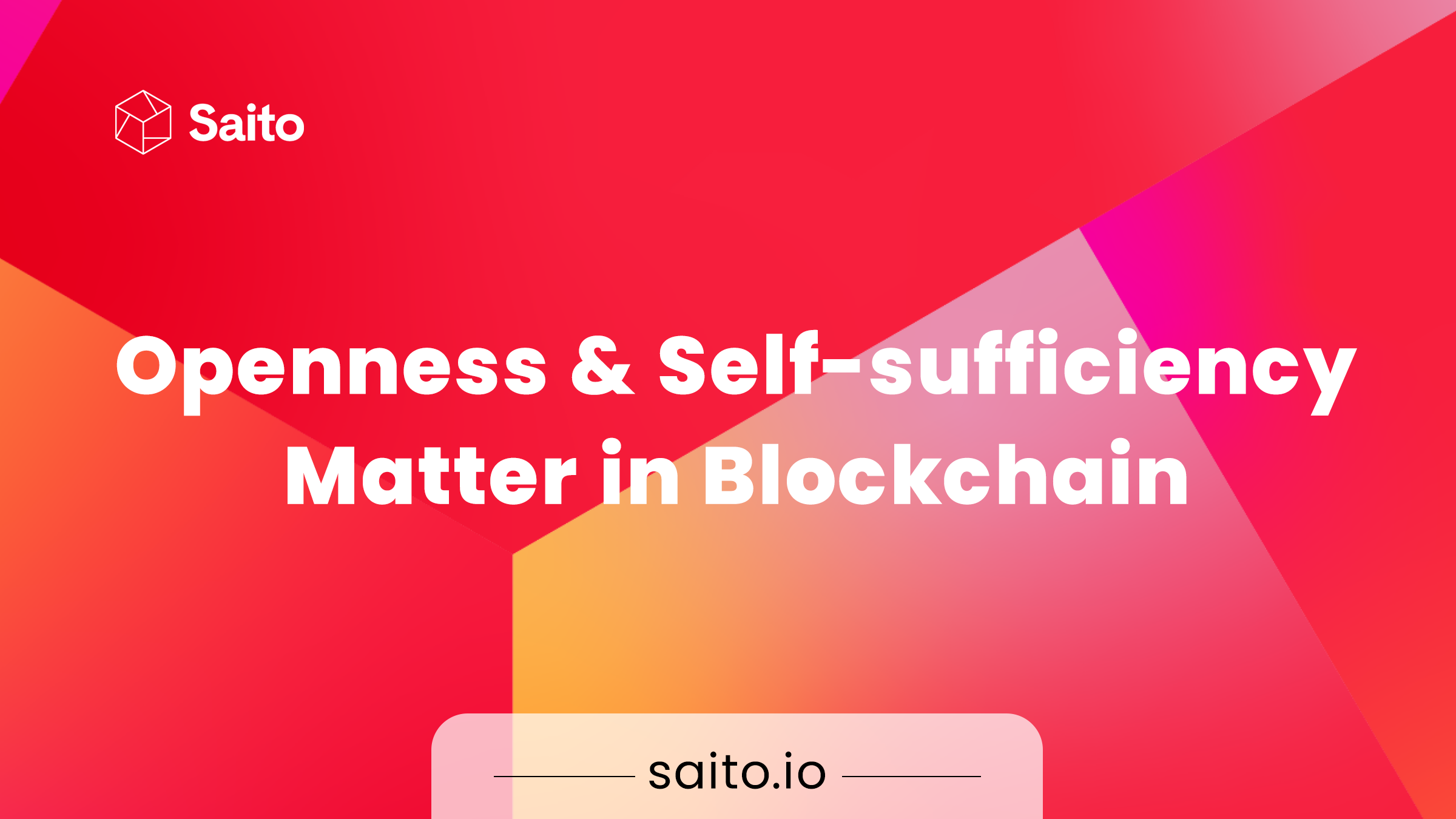Saito Co-founder David Says Openness & Self-sufficiency Matter in Blockchain at Blockchain Research Roundtable Event
Saito co-founder David Lancashire was invited to speak at Blockchain Research Roundtable on September 16th, 2021. The event gathered leading thinkers and researchers in blockchain, to discuss blockchain technology with the Blockchainhub Community.
David presented to a panel arguing that It’s Openness Not Decentralization That Matters in Blockchain. The Saito co-founder argues that the properties that people believe come from decentralization actually stem from openness – the inability to exclude people from the chain. He continued that openness is not free; we need to pay for open data flows that support it and allow free competition in the network. In the original design, bitcoin, volunteers took care of this work but as these networks scale the responsibility for doing that needs to shift to for-profit firms in the private sector and as it turns out economics has a ton to say about the massive problems that computer scientists are running into doing this. This is what’s happening with the peer to peer network right now. In every scalable blockchain miners and stakers do not want to run the network. They are letting their responsibility for that be handled by other people. This is the Ethereum network where everybody is free riding on Infura.
There are three kinds of solutions in the blockchain industry. The first is the emergence of networks that return to volunteer provision and these networks can be open. Anybody can join but they cannot scale beyond the point that volunteers will provide infrastructure. The second solution is we can invite the free market to pay. But, the private sector will create barriers to data sharing to create opportunities to profit. So we will end up with these scalable networks that are permissioned networks that are dominated by monopolies in the network layer that’s what we’re seeing with Infura.
Saito replaces mining and staking with a form of work where we can route work which adds cryptographic signatures to the network layer and it basically pays people for the work that they do efficiently collecting money for the network. So it’s a non-extractive form of work otherwise the network has the same properties as POW and POS.




